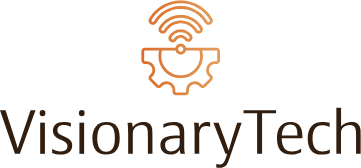The field of education is embracing the power of artificial intelligence (AI) to personalize learning and enhance the educational experience for all students. This article explores the innovative ways AI is being integrated into classrooms, from intelligent tutoring systems that adapt to individual learning styles to virtual reality simulations that create immersive learning environments. Get ready to discover how AI is revolutionizing education, fostering a future where learning is more engaging, effective, and accessible.
The Integration of AI in Education
The integration of AI in education is transforming the way students learn and teachers teach. By leveraging AI technologies, educational institutions can create more personalized and interactive learning experiences for students. AI algorithms analyze vast amounts of data to identify individual learning styles, preferences, and areas of improvement. This allows educators to tailor their teaching methods and curriculum to meet the specific needs of each student, ultimately enhancing their learning outcomes.
Moreover, AI-powered tools and platforms can offer real-time feedback and assistance to students, facilitating their understanding of complex concepts and subjects. For example, adaptive learning platforms use AI algorithms to track students’ progress and adjust the difficulty level of tasks accordingly. This adaptive approach ensures that students are continuously challenged at their appropriate skill level, maximizing their learning potential.
AI-Powered Tutoring and Assistance
AI-powered tutoring and assistance in education are revolutionizing the way students receive support and guidance. Here’s how AI is reshaping the tutoring landscape:
- Virtual Teachers and Chatbots:
- AI-driven virtual teachers and chatbots provide students with instant access to assistance and guidance.
- These virtual entities can answer questions, provide explanations, and offer feedback on assignments and assessments.
- Students can interact with virtual teachers anytime, anywhere, allowing for personalized learning experiences tailored to their individual needs and schedules.
- AI-Enhanced Assessments:
- AI technologies enable the development of intelligent assessment tools that can analyze students’ responses and performance.
- These tools can provide immediate feedback on assessments, highlighting areas of strength and areas for improvement.
- AI-enhanced assessments are adaptive, adjusting the difficulty level of questions based on students’ responses, ensuring that assessments accurately reflect students’ knowledge and abilities.
- 24/7 Support and Accessibility:
- AI-powered tutoring and assistance platforms offer round-the-clock support to students, overcoming limitations imposed by traditional tutoring services.
- Students can access assistance whenever they encounter difficulties or need clarification on concepts, fostering independent learning and self-paced study.
- AI-driven tutoring platforms are accessible to students with diverse learning needs and preferences, promoting inclusivity and equity in education.
By leveraging AI-powered tutoring and assistance, educational institutions can provide students with personalized support and guidance, enhancing their learning experiences and outcomes.
Overcoming Educational Challenges with AI
| Educational Challenges | AI Solutions | Benefits |
| Addressing Learning Disabilities | AI-powered adaptive learning platforms | Tailored support for diverse learning needs |
| Bridging Language Barriers | Language translation and comprehension AI tools | Facilitating access to education for non-native speakers |
| Encouraging Inclusivity | AI-driven personalized learning experiences | Promoting equity and diversity in education |
- Addressing Learning Disabilities:
- AI-powered adaptive learning platforms utilize machine learning algorithms to customize learning experiences for students with learning disabilities.
- These platforms offer tailored support, such as providing alternative formats for content, adapting instructional methods, and offering additional resources to address individual learning needs.
- By accommodating diverse learning styles and preferences, AI helps students with disabilities overcome barriers to learning, enabling them to succeed academically.
- Bridging Language Barriers:
- AI-driven language translation and comprehension tools facilitate communication and comprehension for students who speak different languages.
- These tools can translate educational materials, instructions, and discussions into multiple languages, ensuring that all students can access and understand course content.
- By breaking down language barriers, AI promotes inclusivity and diversity in educational settings, creating opportunities for students from diverse linguistic backgrounds to participate fully in learning activities.
- Encouraging Inclusivity:
- AI-powered personalized learning experiences cater to the individual needs, preferences, and abilities of each student.
- These personalized experiences adapt the curriculum, instructional methods, and assessments to suit each student’s unique learning profile, ensuring that all students receive the support and resources they need to succeed.
- By fostering a culture of inclusivity and equity, AI promotes diversity in educational environments, creating a more welcoming and supportive atmosphere for students from diverse backgrounds and identities.
AI’s role in overcoming educational challenges extends beyond just addressing specific issues. It also fosters a culture of innovation and adaptation within educational institutions. By embracing AI technologies, educators can continually refine and improve their teaching methods, curriculum design, and student support services. Moreover, AI empowers students to become active participants in their own learning journey, encouraging autonomy, critical thinking, and problem-solving skills.
Future Prospects and Innovations in AI Education
Looking ahead, the future prospects for AI in education are incredibly promising. One of the most exciting areas of innovation lies in the development of AI-powered virtual reality (VR) and augmented reality (AR) learning experiences. These immersive technologies have the potential to transform traditional classrooms into dynamic, interactive learning environments where students can explore complex concepts in a hands-on manner.
Additionally, AI-driven adaptive learning platforms are poised to become even more sophisticated, offering increasingly personalized and tailored learning experiences for students. These platforms will continue to analyze vast amounts of data to identify individual learning needs and preferences, enabling educators to deliver targeted interventions and support. As AI technology continues to advance, its integration into education will undoubtedly lead to exciting new possibilities for teaching and learning.
AI Ethics and Education
Ethical considerations are paramount in the integration of AI technologies into education. As AI becomes increasingly embedded in educational systems, it is essential to uphold ethical principles and values to ensure the well-being and rights of all stakeholders involved. This includes students, educators, administrators, and parents.
- Data Privacy and Security:
- Educators and policymakers must address concerns related to the collection, storage, and use of student data in AI-powered educational systems.
- Safeguarding student privacy and ensuring data security are paramount to maintaining trust and integrity in educational settings.
- Bias in AI Algorithms:
- AI algorithms have the potential to perpetuate or amplify existing biases present in educational systems, such as racial, gender, or socioeconomic biases.
- It is essential to identify and mitigate bias in AI algorithms to ensure fair and equitable outcomes for all students, regardless of background or identity.
- Ensuring Transparency and Accountability:
- Educational institutions and AI developers must prioritize transparency and accountability in the design, implementation, and use of AI technologies.
- Clear guidelines and protocols should be established to govern the ethical use of AI in education, including mechanisms for oversight and accountability.
- Equitable Access and Inclusivity:
- AI should be leveraged to promote equitable access to education for all students, regardless of geographical location, socioeconomic status, or ability.
- Efforts should be made to bridge the digital divide and ensure that AI technologies benefit all students, particularly those from underserved or marginalized communities.
Ethical considerations must guide the development and deployment of AI in education to ensure that these technologies enhance learning outcomes while upholding principles of fairness, transparency, and inclusivity. By addressing ethical concerns proactively, educators can harness the full potential of AI to create more equitable and accessible educational opportunities for all learners.

